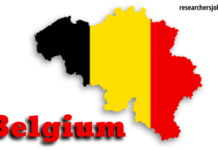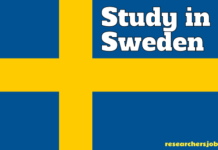Doctoral Position in Neuroethology: The University of Konstanz is offering a PhD position in Neuroethology within the Visual Neuroethology group led by Dr. Anna Stöckl. The research will focus on the dynamic visual abilities of nocturnal moths, particularly their responses to varying light environments. This role provides a unique opportunity to delve into the neural and behavioral mechanisms underlying vision in these insects.
Summary Table
| Designation | Doctoral Position in Neuroethology (65 %, E 13 TV-L) |
|---|---|
| Reference No. | 2024/102 |
| Start Date | September 1st, 2024, or by agreement |
| Duration | 3 years, with the possibility of extension |
| Location | University of Konstanz, Germany |
| Application Deadline | Until positiom filled |
Designation
Doctoral Position in Neuroethology
Research Area
Dynamic visual abilities of nocturnal moths, focusing on their processing of visual information in varying light environments.
Location
University of Konstanz, Germany
Eligibility/Qualification
- Master of Science or equivalent in Biology, Neuroscience, or related fields
- Strong interest in insect vision and neuroethology
- Experience in quantitative behavior/animal tracking
- Preferable experience in computational tools or electrophysiology
Job Description
- Study mechanisms underlying vision in dynamic light environments using the elephant hawkmoth (Deilephila elpenor) as a focus species
- Conduct quantitative behavioral measurements of moths’ free flight in different light intensities using motion-capture tracking in a large flight arena
- Depending on qualifications, perform neurophysiological measurements of motion processing neurons or quantify natural and polluted light environments of moths
- Contribute actively to theoretical and practical research exchanges within the group and the international research environment at Konstanz University
Responsibilities
- Capturing moths’ free flight strategies in dynamic light using state-of-the-art motion technology
- Conducting neurophysiological measurements of motion processing neurons or quantifying light environments, based on the candidate’s profile and preferences
- Engaging in computational modeling of moth vision in dynamic scenes
- Actively contributing to research exchanges within the group and broader scientific community
How to Apply
Candidates should prepare the following application materials:
- Cover letter detailing their interest and qualifications
- Curriculum vitae (CV)
- Academic transcripts
- Contact information for at least two references
Applications should be submitted through the University of Konstanz’s online application portal or emailed directly to the Visual Neuroethology group at the provided contact email.
Last Date for Apply
Until positiom filled
Join us in pioneering our understanding of how nocturnal insects cope with dynamic light environments, including artificial light pollution, at the prestigious University of Konstanz.









